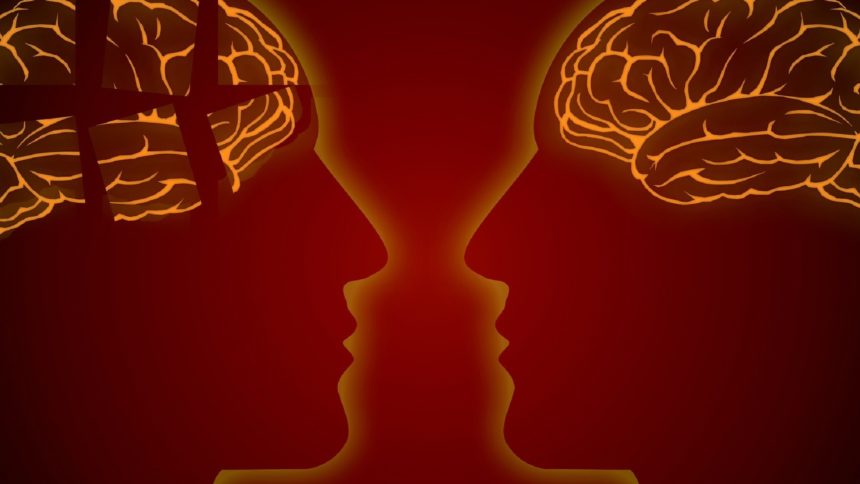When a person has Down syndrome, he or she is more likely to develop Alzheimer’s disease. The disease is difficult to recognize because the intellectual disability camouflages the signals from Alzheimer’s. In addition, it is difficult to distinguish between normal aging symptoms and onset dementia in Down syndrome.
Cause of dementia in Down syndrome
The person with Down syndrome has an extra copy of chromosome 21. This chromosome contains a gene that is related to Alzheimer’s disease. An extra copy therefore also means an extra gene that can cause Alzheimer’s. The gene is responsible for the formation of so-called plaques that accumulate in the brain. These are characteristic of Alzheimer’s disease. Besides Alzheimer’s disease, Vascular Dementia is also common in people with Down syndrome.
Symptoms of dementia in Down syndrome
The first symptoms can already be around the age of 40, because the aging process in Down syndrome is faster. Many people with Down syndrome at the age of 40 work the same as people around the age of 80 without the syndrome. The first signs of dementia are usually:
- Memory problems;
- Being less active and faster tired;
- Slowness in thinking and doing.
These signals do not yet say much and can easily be seen as normal aging symptoms. It becomes clearer when the person also:
- Has less interest in all kinds of things that they had previously been interested in;
- Is drowsy during the day;
- Has orientation problems;
- Is uncertain in his or her movements and motor skills;
- Can no longer learn new things (imprinting problems).
Diagnoses
In order to make a diagnosis, a doctor needs signals of changed behavior. You can indicate this as a caregiver. If the person has lived in an institution for a long time and there is still little family, the reports from the past are important. From this a doctor can tell if she could, for example, watch or cook.
Moreover, intellectual disability masks the deterioration in memory and thinking ability. For a proper diagnosis, the doctor will have to exclude all other possibilities that resemble dementia. This could include disorders such as:
- Depression;
- Thyroid abnormalities;
- Hearing problems;
- Vitamin deficiency;
- Head injury;
- Tumor in the head;
- Too much medication or a wrong combination of it.
Course of dementia in Down syndrome
After the beginning, with the symptoms to which the disease is recognizable, the course of this form of dementia is similar to the course of the disease in people without Down syndrome. The symptoms worsen over time and result in bedridden, swallowing problems, incontinence and severe epilepsy. These symptoms vary greatly per person in which the disease manifests itself. Doctors state that the disease process in elderly people with intellectual disabilities from the diagnosis takes less than five years.

